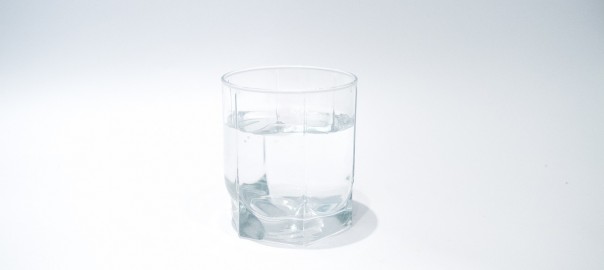
Water Filtration in Raleigh, NC
Clean water is essential to healthy, happy living. Find out how you can enjoy clean, purified well water with our state-of-the-art well water filtration systems and solutions.
"*" indicates required fields
When water is in its most natural and purest form it is colorless, tasteless, and odorless. But, due to the imperfections of nature, contamination, and degrading supply lines, water often needs treatment to become suitable for consumption.
Proper well water filtration can be the difference between clean, pure water and water that is discolored and contains sediments that can destroy plumbing, appliances, or clothes.
At A&T Well and Pump, we are committed to providing you the services you need to ensure that your water is as clean as possible. Our well water filtration services in Raleigh, NC allow us to offer you the peace of mind you need when it comes to the quality of your water supply.
Should You Filter Your Well Water?
Absolutely!
Don’t take for granted the importance of proper well water filtration in Raleigh. Not only does well water filtration help prevent you from consuming harmful contaminants, it can improve the quality of the water you use, increasing the life of your appliances, plumbing, and clothes.
In addition to pollutants that sometimes find their way into the water supply, certain elements and minerals naturally present in groundwater can alter the taste, smell, and color of your well water. This can make cooking and bathing less than enjoyable for your family and guests. Without proper well water filtration, your well water can even permanently stain your sinks, toilets, and bathtubs.
Contact Our Well Specialists Today For A Quote!

Signs You Are Due for Well Water Filtration Services
Untreated or unfiltered water can cause problems in many ways from poor taste to causing illness. Below are some common issues well owners face. If you are experiencing any of the following issues, it’s time to schedule a Raleigh well water service with a professional from A&T Well and Pump.
Foul Water Taste and Odor
Water that smells or tastes bad can be caused by a number of factors:
- Rotten Egg Odor: This can be caused by naturally occurring sulfites or sulfates, known as hydrogen sulfide, created by dissolving minerals, gasses, and oil. In high concentrations, the odor can cling to hair and clothing washed in the untreated water.
- Musty or Earthy Taste and Smell: Caused by decaying vegetation typically present from algae blooms. Usually not a cause for toxicity concerns, but can be undesirable for cooking and drinking.
- Metallic Taste: The presence of minerals like zinc, iron, manganese, and copper in your water supply can lead to a metallic taste. Manganese and iron are often naturally present in well water. Copper and zinc are often caused by degrading copper plumbing and water supply systems.
Contamination
Health issues are a huge cause for concern when it comes to well water. Improperly treated wells can easily become breeding grounds for E. Coli and other bacteria and viruses. Any well located near agriculture, livestock, or septic tanks must take extra precautions to prevent well water contamination. Fecal matter and nitrates from fertilizers can leach into the water table causing stomach problems and other illnesses.
To sanitize dirty and contaminated well water, it’s essential to schedule a well water testing and water filtration services with A&T Well and Pump in Raleigh, NC as soon as possible.
Hard Water Due to Residue & Buildup
Hard water is caused by calcium and magnesium which are naturally present in the water supply. After being heated, water containing these elements will leave traces of “scale.” This is a buildup of dissolved minerals that can damage plumbing and hot water using appliances. Buildup can develop within pipes and drains, reducing water flow.
Residue can be found on clothes and dishes. Costly appliance and plumbing repairs can be avoided with a proper treatment plan to implement a new well water filtration system.
Stains
Low pH balance in the water supply can lead to erosion of copper pipes and porcelain. Often the “eaten” away material will leave stains of a blue-green coloring. This can be almost impossible to remove once a stain has set in.
Mineral stains occur from water with higher levels of manganese and iron. Clothes, fixtures, and even hair color can be affected by high concentrations. Decaying plant material can lead to tannins in the water supply, leading to yellowing of clothes and plumbing.
Color & Cloudiness
A variety of factors can be at fault for cloudy or off-colored water, including:
- Rusty Coloring: Presence of minerals like iron and manganese.
- Yellow Coloring: Tannins from decaying vegetation, often occurring near the coast or swampy regions.
- Cloudy or Grayish: Dissolved solids in the water supply lead to cloudy water, called “turbidity.” The sediment in the water can range from clay to dirt and silt. If storms or heavy construction has been present in your area, it’s possible that your water has been affected. Compromised wells with damaged walls and filter screens can lead to debris in your water supply. Even clear water may contain dissolved particles that are undetected by your eyes.
How Does a Well Water Filtration System Work?
A water filtration system will filter chlorine, iron, mercury, and other contaminants from your water supply. Well water filtration can even help with hard water by removing the calcium and magnesium that can be found by ion exchange. Hard water that passes through the filter's resin bed will exchange hard ions with soft ions, leaving only softened water to enter the home.
Enjoy cooking, bathing, and drinking with water made pure by a professionally installed well pump and well water filtration system.
FAQs About Our Well Water Filtration Services
How often should I replace my filters?
Generally filters should be replaced within one year. But, how long they’ve been in use and how many gallons of water they’ve treated will also factor into how often you should replace your filters. If you’re unsure if your water filter needs to be replaced, the team at A&T Well and Pump will be glad to assist you.
Will I experience a water flow reduction with a water filter?
Most people do not experience a water speed reduction. In some cases, a filter can reduce the water flow by 8-10 psi.
How often should I have well water testing done?
It is recommended to have well water testing done yearly to look for coliform bacteria and nitrates that can lead to an unhealthy water supply. This is especially true if you have a new well or have recently replaced parts or had them repaired. If you notice any changes in the way your water looks, tastes, or smells, that is also a red flag to get it tested immediately. These are all signs of contaminated water.
Can I test my water on my own?
While there are DIY water testing kits, it is recommended to have your water testing done by a professional. This will ensure the most accurate results.
What should I do if my well water tests positive for coliform or other harmful contaminants?
Use a safe water source, such as bottled water, until your water issues are resolved. Also, have your well inspected so you can get to the root of the problem. Well repairs may be necessary.
If there are severe problems, or if the well is old, you may need well replacement. The team at A&T Well and Pump can properly diagnose your problem and advise on the next course of action.
Once your water is deemed safe to use, you want to stay on top of the water testing process. This will allow you to stop any other water safety issues should they arise.
Schedule Well Water Filtration Services in Raleigh with A&T Well and Pump
Ensuring the safety and quality of your well water is vital, especially given its direct connection to the local water table. By scheduling well water testing and well water filtration services in Raleigh with A&T Well and Pump, you not only safeguard your family's health but also contribute to the responsible management of our precious groundwater resources.
Contact us today to take proactive steps toward cleaner, safer water that benefits both your household and the broader community.
